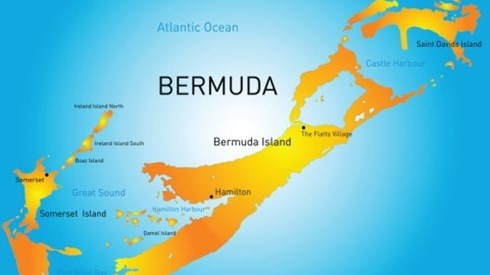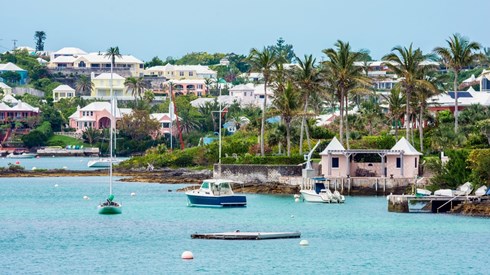BMA Report Highlights Bermuda Captives' Relevance, Stability

November 30, 2022

A recently released report from the Bermuda Monetary Authority (BMA) underscores the continued relevance and stability of Bermuda's captive insurance market as it addresses uncertainty associated with such events as the global COVID-19 pandemic.
In addition, Bermuda's captive insurance market continues to demonstrate its viability and strength through such metrics as premiums written, capital available, and its position as a global market leader, the BMA says in its BMA Captive Report 2021.
"The market has been resilient in the face of unprecedented events, market cycles, and the evolution of risk, evidenced by the celebration of the 60th anniversary of the first captive to be established in Bermuda," the November 24, 2022, report says. "Since the formation of the first captive, the regulation and supervision of captives has significantly evolved over the years to the risk-based model utilized today."
The result, according to the BMA, is continued interest in forming captives in the domicile with an average of 17 new captives forming annually since 2018, along with increased use of existing Bermuda captives.
"Participants in the Bermuda captive market recognize the opportunity to further address their organizations' exposures," the report says. "As a result, they have increased the utilization of solutions available in the captive market, driving innovation and evolving the use of the traditional captive business model."
The BMA report is based on 2020 year-end statutory financial returns submitted by Bermuda general business captive insurers. It found that Bermuda captive insurance companies wrote more than $24 billion in gross premium during the year. Bermuda registered 12 new captives in 2020, down from 21 in 2019.
According to the BMA report, 65 percent of Bermuda captives have a "traditional" captive insurance company structure, writing only the risks of the captive's parent or its affiliates. Other structures included insurer/reinsurer, 17 percent; rent-a-captive, 8 percent; group captive, 7 percent; association captive, 3 percent; and agency captive, 1 percent.
The bulk of the risk assumed by the Bermuda captive market—71 percent—comes from North America, with 12 percent originating in Europe, 6 percent from Japan, 4 percent from the rest of Asia, 3 percent from Africa and the Middle East, 3 percent from Central and South America and the Caribbean, and 1 percent from Australia and New Zealand, the report says.
According to the report, the BMA found no significant changes in the demographics of Bermuda captives from 2019 to 2020. Financial institutions are the leading group of captive parents, representing 14 percent of Bermuda captives, followed by automotive, manufacturing, and retail with 13 percent; shipping, transport, and storage with 12 percent; professional services at 10 percent; and health care at 9 percent.
The report notes that the BMA has sought to apply a pragmatic approach to the regulation of Bermuda captives to help enable the growth of the domicile's captive insurance sector. "The Authority continues to apply a proportionate approach to its supervision of captive entities in an endeavor to ensure that the oversight and requirements are proportional to the size of risks posed by the insurers in the sector at every stage of the assessment," the report says.
The report cites the BMA's efforts to increase the efficiency and speed with which Bermuda captives can respond to their organizations' needs through its 2021 guidance on its expectations regarding material new lines of business. Under the guidance, captives seeking to write related-party risks will encounter a streamlined process allowing ease of entry in covering new risks, as well as an efficient application process to allow for changes in risk profile and unrelated underwriting risks.
While there are a number of emerging risks, the two most notable are cyber—particularly ransomware—and climate, the BMA report says.
"Bermuda captives and their parent companies continue to pay close attention to cyber risk as well as the significant increase in the cost of cyber insurance in the commercial market," the report says. "In this regard, the BMA has noted a significant growth in the number of organizations using their captives for cyber insurance as part of the overall management of the risk."
Cyber-risk premiums in Bermuda captives increased 42 percent in 2020 from the 2019 level, according to the report.
The BMA continues to work with registered companies to enhance their cyber resilience and readiness, the report says.
The report also notes that the BMA recently issued a guidance note, "Management of Climate Risk for Commercial Insurers," for consultation. "This guidance note, influenced by qualitative and quantitative climate risk surveys data gathered over several years, is intended for commercial insurers; however, it also informs captives on governance and risk management elements related to climate risk," the report says.
The BMA says it has seen organizations and their captives taking steps to respond to climate risks. "For instance, companies are implementing measures to embed climate risk into key decision-making processes and are formulating efforts to increase climate risk awareness throughout their organizations," the report says. "These actions positively impact captives from a risk perspective and equally uncovers opportunities for both the parent companies and their captives."
Captive insurance is beginning to play an important part in closing the climate risk protection gap, the BMA report says. It offers the example of supporting low-carbon technologies, the sorts of exposures with which the commercial insurance market historically may have had less experience in their early stages.
"The BMA expects further captive developments with the mitigation of climate risk in the future," the report says. "Additionally, the Authority supports continued innovation in this space and is interested in emerging strategies for captives in the Bermuda market."
November 30, 2022





